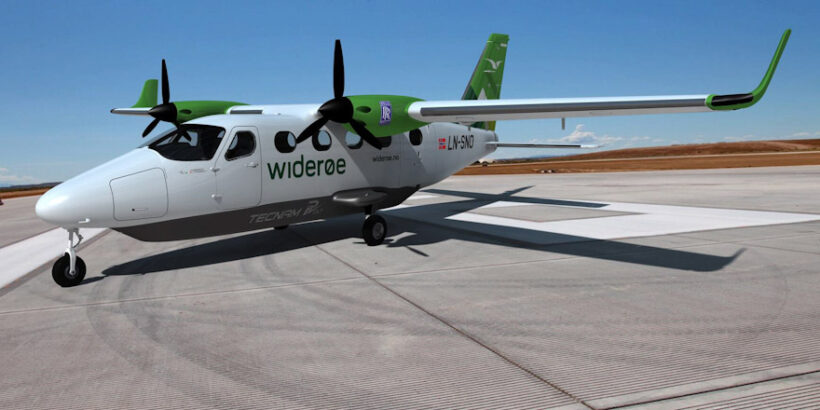Italian company Tecnam and its partner Rolls-Royce have abandoned plans to develop an all-electric P-Volt passenger plane after they jointly concluded that current electricity storage and storage technology does not ensure the viability of a commercial product.
The Italian aircraft manufacturer said in a statement that it will continue to explore new technologies but work on an electric version of the nine-seat twin-engine P2012 Traveller will be discontinued.
After three years of research and development, Tecnam concludes that its batteries are not suitable for the aircraft as a power source due to the need to replace them after a few weeks of operation. This frequent battery replacement would place a heavy burden on the aircraft operator and make all-electric passenger aircraft simply the flagship of the green transition rather than a real player in decarbonising aviation.
“From the beginning of P-Volt development, Tecnam’s focus has been to enable operators to operate an all-electric passenger aircraft profitably, efficiently and sustainably in terms of operating costs, emissions, performance, turnaround and time to market. At present, Tecnam believes this can only be achieved through extremely aggressive speculation on uncertain technological developments,” the company said in a statement.
On the most optimistic forecasts, slow charging cycles and a possible cap on maximum charge per cycle would see real storage capacity fall below 170Wh/kg and just a few hundred flights would force operators to replace all batteries on the BC.
Rolls-Royce Electrical has been involved in the development of the propulsion system for the P-Volt and has also been involved in work to convert the Tecnam P2010 quadcopter to use the H3PS1 hybrid-electric propulsion system developed with Rotax. Scandinavian regional airline Widerøe announced in March 2021 that it would become the first customer for the P-Volt with deliveries beginning in 2026.
Rolls-Royce’s priority now is to use the P-Volt on regional jets. The company will prioritise their development by developing a turbine generator that can run on green jet fuel. At the same time, RR will produce battery electric propulsion systems for small vertical take-off and landing (eVTOL) aircraft, such as the VX4 being developed by UK-based Vertical Aerospace.
Acknowledging significant market interest in sustainable electric aviation, Rolls-Royce said work with Tecnam has highlighted the limitations of battery-electric technology. The capacity of today’s batteries is sufficient for key operator tasks, but the lifecycle performance of energy storage leads to management solutions that are not feasible in widespread market applications, the company said,
Tecnam research and development director Fabio Russo pointed out that the company does not want to be part of the race to bring all-electric aircraft to market by 2026. “Our culture has always been to strive for achievable goals with customers and operators, and we intend to keep that promise,” he commented.


